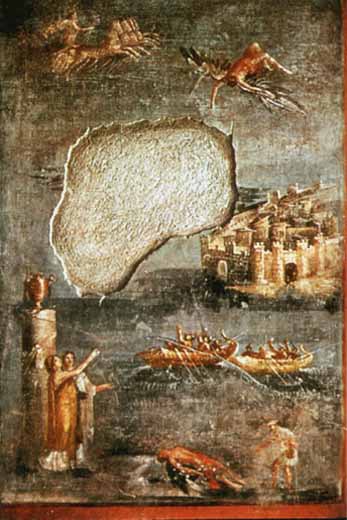
Post #37
Baudelaire’s gift (170-172)
Derrida ends Given Time; signalling the unknowability of the secret of what either Baudelaire, the narrator, or the friend meant to say or do in Counterfeit Money. He does this through his repeated use of “perhaps,” as the condition under which the events occur. This is the secret that enters literature, constituted by the literary institution and revealed by that institution only to the extent it loses all interiority, all thickness, all depth. It is an unbreakable secret, it is not subjective, it is superficial, without substance.
“It is spread on the surface of the page, as obvious as a purloined letter, a post card, a bank note, a check, a “letter of credit” – or “a silver two-franc piece.” (170)
A further conclusion is reached, “there is no nature, only effects of nature.” The meaning of nature is referred back to it from a simulacrum that it is thought to cause, in this case literature. The narrator, as nature, represents a nature that does not so much give as lend, and lends more than it gives. It extends credit, this for that (tit for tat), as the narrator lends wings to his friend’s mind. Derrida expands on this lending of wings by asking us to recall the story of Icarus, as told in Baudelaire’s poem The Complaints of an Icarus. Asking if that story would be the “whole story, all of history? In any case…a certain history of philosophy.” There follows an account of the poem.
Icarus, “an” Icarus refers the poem’s subject to the author, to Baudelaire, a writer who “is not able to sign…unable even to give his name, to give himself a name, to give a name to his end.” (171) How therefore, asks Derrida, can he know how to give? As one who writes, he has no place of burial and therefore no proper name, he is depersonalised and thereby sinks into the abyss. The poet does not sign, he complains that he cannot even pity himself. A gift is not signed, it does not calculate even with a time that would do it justice, Baudelaire makes no concessions, his “modernity” marked by a “striking insolence,” extends no credit to the sublime. Which Derrida characterises as “speculation” and “counterfeit money” that one would like to substitute “for the hopeless, cruel, prostituting, killing of “love of beauty.”
Derrida concludes Given Time with a reading of The Complaints of an Icarus, as a downfall [chute], a story of the end, a falling off, “its absolute humility, and just the lowest possible:”
[…]
My consumed eyes see only
Souvenirs of the sun.
[…]
Beneath some unknowing eye of fire
I feel my wing breaking;
And burned by the love of beauty,
I will not have the sublime honor
Of giving my name to the abyss
That will serve as my tomb.
Derek Hampson
Previous Post: The Judgment of Nature